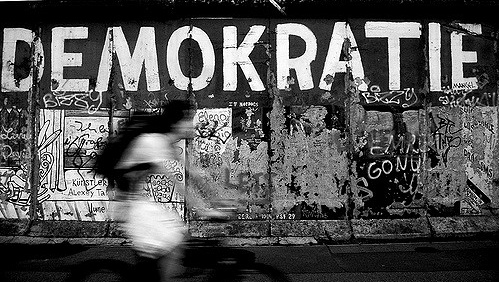Tagung "Demokratiebefähigung"

Conference on Enabling Democracy
30.09-02.10.2026In recent years, the rise of authoritarian and populist tendencies within democracies once considered stable has become a matter of deep concern. Despite the urgency of this development, systematic knowledge of the underlying causes and the mechanisms capable of countering this development remains fragmented and incomplete. This points to a pressing need for reflection on what enables democracy to function and endure. The conference takes this challenge as its starting point. It seeks to identify the social, institutional, and normative foundations that sustain democratic governance and to explore how these can be strengthened. Theresfore it seeks a dialog between political science, sociology, law, philosophy, and related disciplines to chart new pathways for the renewal of democracy.
The main topics to be covered in the planned panels are:
- Democratic Capabilities/Enabling Civil Society
- Necessities of Social Inclusion
- Modes of Participartion
- Social Cohesion and Collective Building
- Education and the Organization of Knowledge
- Trust and Commitment
- Modern Mechanisms of Democracy Protection
With keynote speeches by Cristina Lafont, Astrid Séville, Michaela Hailbronner and Lisa Herzog. And many more distinguished lectures.
Call for Abstracts
We welcome papers addressing, among others, the following questions:
- How can individual and collective capabilities be strengthened to enable participation and self-governance? What institutional and social preconditions foster these capabilities, and how can they be expanded across diverse contexts? In what ways can civil society be empowered to act as a stabilizing and transformative force within democratic systems?
- Which new or hybrid forms of democratic participation are emerging, and how can they enhance inclusion and legitimacy?
- How can democratic institutions and policies ensure genuine inclusion across lines of class, culture, and migration?
- What social, economic, and communicative conditions are necessary to maintain cohesion and trust among increasingly diverse populations?
- How can shared imaginaries and narratives of belonging be cultivated to sustain collective democratic identities?
- What role do education and knowledge production play in fostering democratic competence and critical reflection?
- How can trust in democratic institutions and mutual commitment among citizens be rebuilt and maintained over time?
- Which legal, institutional, and digital safeguards can effectively protect democracy against erosion from within and without?
The conference will be held from 30th September to 2th October 2026 at the University of Bonn (Germany). The conference language is English.
Please submit an anonymized abstract of no more than 500 words and a short CV, both as separate PDF files by the 16.01.2026 to enablingdemocracy@~@uni-bonn.de (Chair for Public Law and Legal Philosophy, Prof. Dr. Laura Münkler). Notifications of acceptance will be sent by 13.02.2026.
Each speaker will have 20 minutes to present their paper in a renowned panel, followed by a discussion. The panels will be composed of invited professors and young researchers from different disciplines.
Selected papers may be considered for publication. The expected paper length (if accepted) is 8.000–10.000 words (optional submission before the conference).